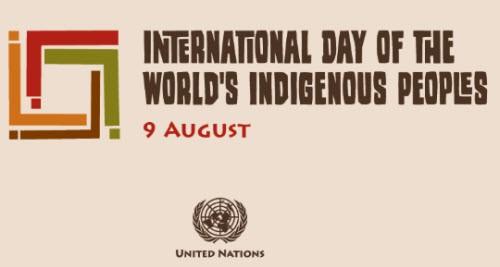States must act now to protect indigenous peoples during migration
- Opinión

GENEVA/NEW YORK (7 August 2018) – States around the world must take effective action to guarantee the human rights of indigenous peoples, says a group of UN experts*. In a joint statement marking International day of the World's Indigenous Peoples, the experts say it is crucial that the rights of indigenous peoples are realised when they migrate or are displaced from their lands:
"In many parts of the world, indigenous peoples have become migrants because they are fleeing economic deprivation, forced displacement, environmental disasters including climate change impacts, social and political unrest, and militarisation. Indigenous peoples have shown remarkable resilience and determination in these extreme situations.
We wish to remind States that all indigenous peoples, whether they migrate or remain, have rights under international instruments, including the UN Declaration on the Rights of Indigenous Peoples.
While States have the sovereign prerogative to manage their borders, they must also recognise international human rights standards and ensure that migrants are not subjected to violence, discrimination, or other treatment that would violate their rights. In addition, states must recognise indigenous peoples' rights to self-determination; lands, territories and resources; to a nationality, as well as rights of family, education, health, culture and language.
The Declaration specifically provides that States must ensure indigenous peoples' rights across international borders that may currently divide their traditional territories.
Within countries, government and industry initiatives, including national development, infrastructure, agro-business, natural resource extraction and climate change mitigation, or other matters that affect indigenous peoples, must be undertaken with the free, prior, and informed consent of indigenous peoples, such that they are not made to relocate against their will. States must recognise that relocation of indigenous peoples similarly triggers requirements including free, prior and informed consent, as well as restitution and compensation under the Declaration.
We are concerned about human rights violations in the detention, prosecution and deportation practices of States. There is also a dearth of appropriate data on indigenous peoples who are migrants. As a result of this invisibility, those detained at international borders are often denied access to due process, including interpretation and other services that are essential for fair representation in legal processes.
We call on States immediately to reunite children, parents and caregivers who may have been separated in border detentions or deportations.
In addition, States must ensure that indigenous peoples migrating from their territories, including from rural to urban areas within their countries, are guaranteed rights to their identity and adequate living standards, as well as necessary and culturally appropriate social services.
States must also ensure that differences among provincial or municipal jurisdictions do not create conditions of inequality, deprivation and discrimination among indigenous peoples.
We express particular concern about indigenous women and children who are exposed to human and drug trafficking, and sexual violence, and indigenous persons with disabilities who are denied accessibility services.
We look forward to engagement in the implementation of the Global Compact for Safe, Orderly, and Regular Migration regarding indigenous peoples' issues.
On this International Day of the World's Indigenous Peoples, we urge States, UN agencies, and others, in the strongest terms possible, to ensure indigenous peoples' rights under the Declaration and other instruments, and to recognise these rights especially in the context of migration, including displacement and other trans-border issues."
- Victoria Tauli-Corpuz, Special Rapporteur on the rights of indigenous peoples,
Del mismo autor
- Los Estados deben actuar ya para proteger a los pueblos indígenas en migración 09/08/2018
- States must act now to protect indigenous peoples during migration 09/08/2018
- Situación de los derechos de los pueblos indígenas en México 09/08/2018
- Se está librando una guerra silenciosa contra las comunidades indígenas filipinas 05/04/2018
- Removing Rights for Indigenous Peoples places Forests, Climate Plan at Risk 11/12/2015
- Declaracíon final misión Honduras de la Relatora Especial de Naciones Unidas sobre los derechos de los pueblos indígenas 12/11/2015
- Statement of the UN Special Rapporteur 11/08/2015
- Towards a New Binding Instrument on Human Rights and Transnational Companies 18/07/2015
- Informe de la Relatora Especial sobre los derechos de los pueblos indígenas. Consejo de Derechos Humanos, 2014 16/09/2014
- Report of the Special Rapporteur on the rights of indigenous peoples 16/09/2014








